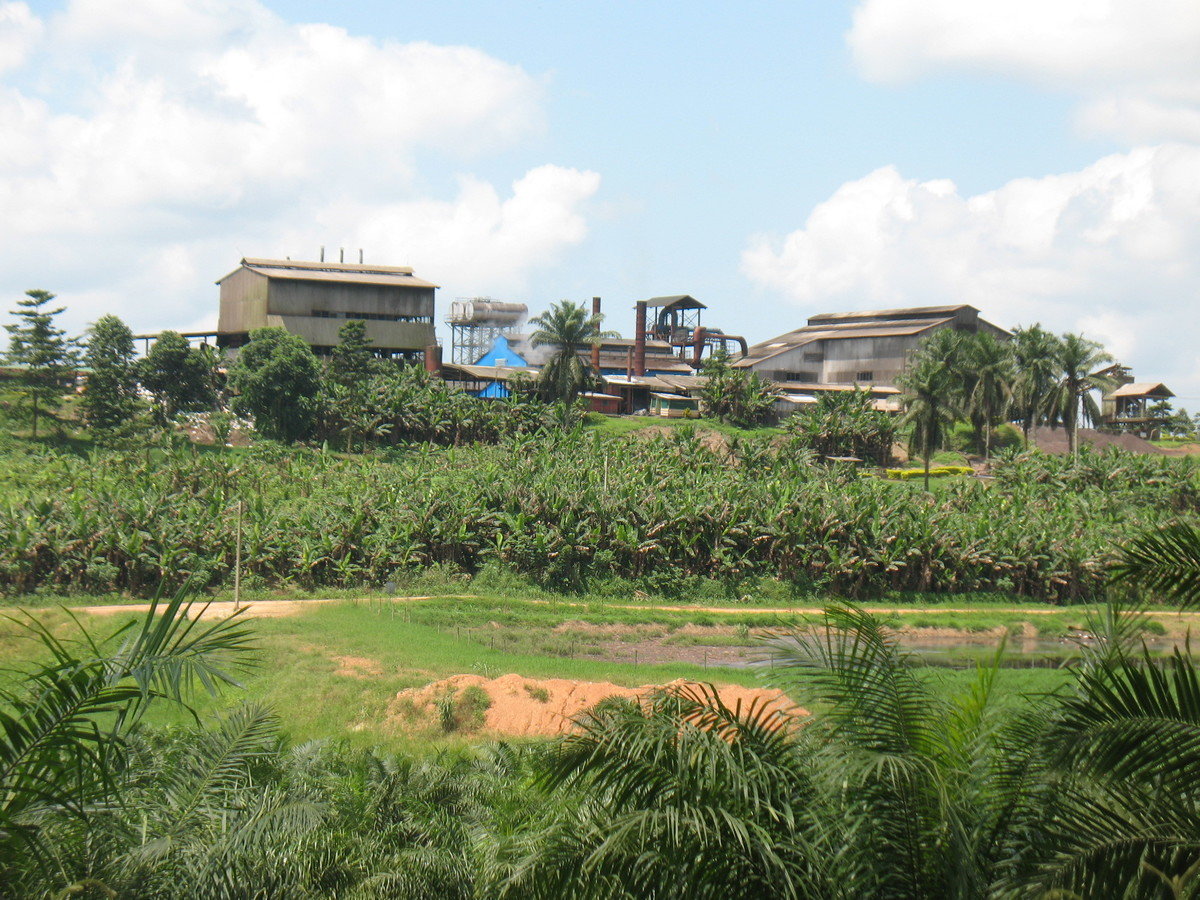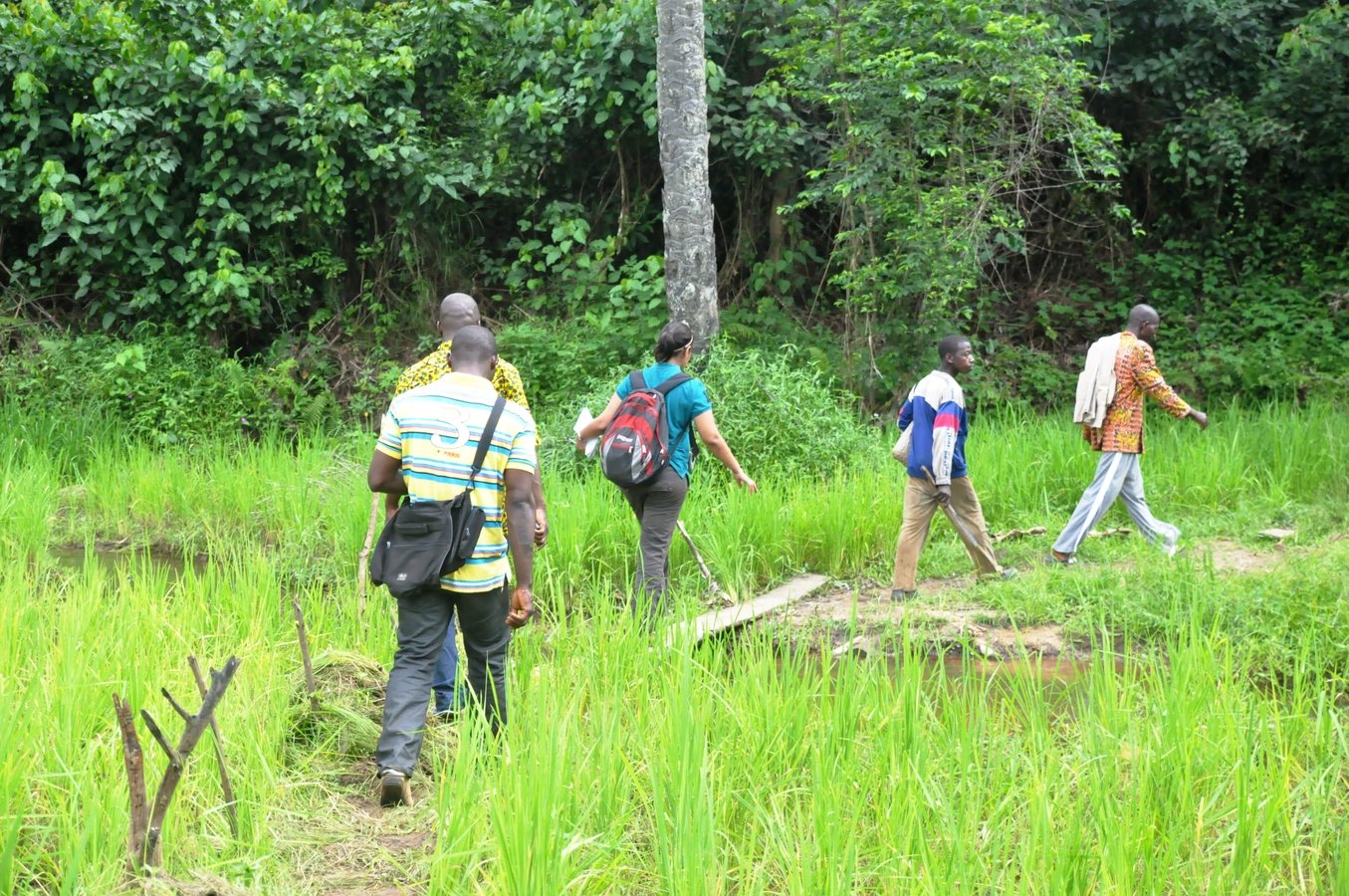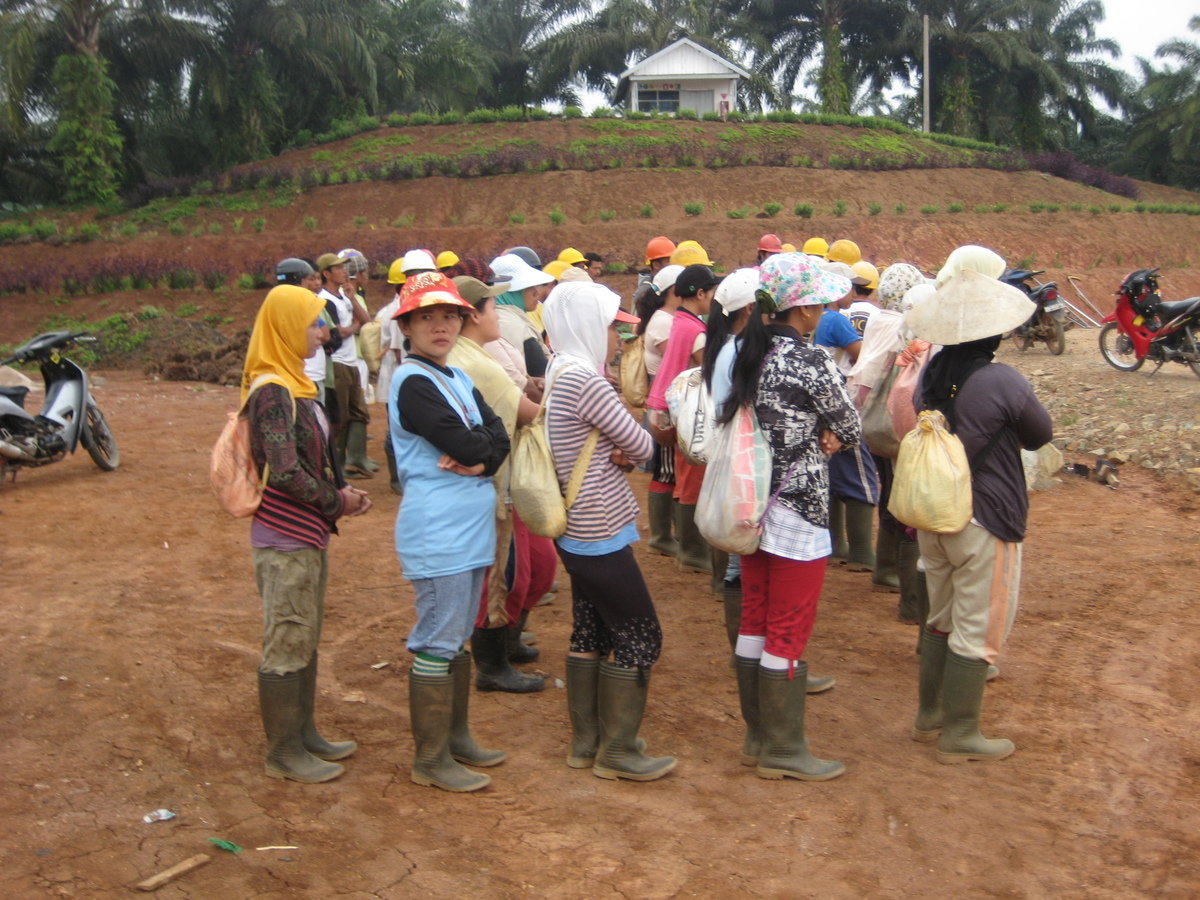The RSPO Certification Standard

This presentation provides a basic overview of the generic international standard. It looks at the requirements a producer has to comply with to be certified.
It covers the eight Principles of the RSPO Principles and Criteria for the Production of Sustainable Palm Oil (2013). It forms the basis of the classroom RSPO Lead Auditor course.

RSPO Endorsed Lead Auditor Course
The Purpose of this Module
The purpose of this Module is to familiarise you with the scope of the RSPO Principles and Criteria.
The RSPO Principles & Criteria (RSPO P&C) 2013 is a generic standard that provides a global definition for the production of sustainable palm oil. The standard is applied to the crude palm oil mill as well as to the supply base producing the fresh fruit bunches (FFB).









Eight Principles
- Commitment to transparency
- Compliance with applicable laws
and regulations
- Commitment to long-term economic and financial viability
- Use of appropriate best practices by
growers and millers




Eight Principles
5. Environmental responsibility and conservation of natural resources and biodiversity




6. Responsible consideration of employees and of individuals and communities affected by growers and mills
8. Commitment to continuous improvement in key areas of activity
7. Responsible development of new plantings
Principle 1:


View Principle
A commitment to transparency
This principle sets out the ways in which oil palm growers and mill operators should provide information about their operations.
Principle 1: A commitment to transparency
Back to top
Principle 1 includes 3 criteria:
-
Provision of information on environmental, social and legal issues in appropriate languages
-
Management documents made publicly available, except in cases of confidentiality or potential for negative environmental or social outcomes
- A commitment to ethical conduct in all business operations and transaction. A written policy which is communicated to all levels of the workforces.



View Principle
Principle 2:
Compliance with applicable laws and regulations
This principle requires that growers and mill operators must comply with local, national and international law.
Principle 2: Compliance with applicable laws and regulations
This principle has 3 criteria:
- Compliance with local, national and ratified international laws and regulations: operators should have a register of applicable laws, maintain copies of the legal requirements, identify the person in charge of monitoring changes and ensuring that laws are implemented
- Right to use land: demonstrated through participatory mapping as part of and free prior informed consent (FPIC) process
- Rights of others and free prior informed consent (FPIC): use of the land must not diminish the legal, customary
or user rights of other users without FPIC.

Back to top


View Principle
Principle 3:
Commitment to long-term economic and financial liability
This principle requires top management to demonstrate attention to economic and financial viability through long-term management planning.
Principle 3: Commitment to long-term economic and financial liability

This principle has 2 criteria requiring evidence of
-
A documented business or management plan,
with a minimum planning period of 3 years
-
An annual replanting programme projected
for a minimum of 5 years.
Back to top


View Principle
Principle 4:
Use of appropriate best practices by growers and millers
This principle relates to good management and specific agriculture practices.
Principle 4: Best practices

This principle has 8 criteria related to 2 themes:
Good management
-
Documented operating procedures e.g. documentation management systems and internal control procedures
-
Training for all staff, workers, smallholders and contract workers. Records of training maintained for each employee
- Health and safety: the workplace, machinery, equipment, transport and processes are safe and without undue risk to health. All indicators apply to all workers regardless of status
Back to top
Principle 4: Best practices

Specific agricultural practices
-
Soil fertility: evidence that good practices are followed, for example through Standard Operating Procedures (SOPs), records of fertiliser inputs, periodic tissue and soil sampling
-
Soil erosion and degradation: practices are adopted that minimise soil erosion, such as ground cover management, biomass recycling, terracing etc.
-
Water: Quality and availability of surface and ground water are maintained, e.g. through a water management plan, protection of water courses and wetlands, riparian and
other buffer zones
Principle 4: Best practices

Specific agricultural practices
-
Pests and integrated pest management (IPM): apply recognised IPM techniques, incorporating cultural, biological, and physical methods to minimise the use of chemicals
-
Pesticide use: Ensure that pesticides are used in ways that
do not endanger health or the environment.
Back to top


View Principle
Principle 5:
Environmental responsibilty and conservation of natural resources and biodiversity
This principle covers environmental responsibility and conservation of natural resources and biodiversity.
Principle 5: Environment and conservation

This principle comprises 6 criteria:
-
Identification & management of environmental impacts: sets out the elements of Impact assessment that should be covered by environmental impact assessment
-
Status of rare species and High Conservation Values (HCV): identify the status of rare, threatened and endangered species and HCVs. RSPO has specific guidance on the information required in an HCV assessment
-
Waste (domestic, industrial): a waste management and disposal plan is implemented to reduce, recycle, re-use
and dispose of waste
Back to top
Principle 5: Environment and conservation

-
Efficient energy use (fossil fuel vs. renewables): have plan in place, monitored to improve the efficiency of use of fossil fuel and to optimise renewable energy
-
Fire not used for land preparation: except in specific situations as identified in the ASEAN guidelines or other regional best practice
- Pollution including GHGs: have plans in place, implemented and monitored to reduce pollution and emissions, including greenhouse gases.
Back to top

View Principle
Principle 6:
Responsible consideration of employees and of individuals and communities affected by growers and millers
This principle relates to the responsible consideration of employees and local people affected by growers and millers.

Principle 6: Consideration of employees, individuals and communities
The principle 6 has 13 criteria related to 3 themes.
Social Impact
- Social impact assessment (SIA) is documented, carried out with the participation of affected parties
- Consultation and communication is open and transparent e.g. documented procedures, nomination of responsible official, list of stakeholders, records of all communication

Back to top
Principle 6: Consideration of employees, individuals and communities
Social Impact
- Resolving disputes: a mutually agreed and documented system for dealing with complaints and grievances implemented and accepted by all affected parties
- Compensation for lost rights: documented system for identifying legal, customary or user rights, people entitled to compensation, and for calculating and distributing fair compensation

Principle 6: Consideration of employees, individuals and communities
Employment & work conditions
- Pay and conditions for employees and for contract workers: meet legal minimum standards, provide decent living wages
- Rights to collective bargaining: documented and published in local languages
- Child labour: documentary evidence specifying that minimum age requirements are met
- No discrimination (based on race, caste, national origin, religion, disability, gender, sexual orientation, union membership, political affiliation, or age) a publicly available equal opportunities policy and an evidence of no discrimination.

Principle 6: Consideration of employees, individuals and communities
Employment & work conditions
- Sexual harassment: a policy to prevent sexual harassment and violence and to protect the reproductive rights
- No forced or trafficked labour: policy and procedures are established and implemented
- Respecting human rights: policy documented and communicated to all levels of the workforce and operations including contracted third parties

Principle 6: Consideration of employees, individuals and communities
Local development
-
Relations with smallholders and other local businesses:
fair & legal and transparent contractual agreement
e.g. current and past prices paid for FFB publicly available,
FFB pricing, and pricing mechanisms for FFB etc - Local sustainable development: contributions to local development based on the results of consultation with local communities.

Back to top


View Principle
Principle 7:
Responsible development of
new plantings
This principle deals with the responsible development of new plantings through
the implementation of RSPO New Planting Procedure (NPP).
Principle 7: Requirements of new plantings
This principle comprises 8 criteria including:
- Conducting a social and environmental impact assessment: have a documented independent SEIA undertaken through a participatory methodology
- Information on soils and topography: soil suitability maps or soil surveys and topographic information
- No conversion of primary or any area required to maintain/enhance HCVs since November 2005: evidence of no new plantings, an HCV assessment conducted through licensed HCV assessors, action plan developed and consultation with communities

Principle 7: Requirements of new plantings
- Steep slopes and fragile soils: have maps identifying marginal and fragile soils and plans protecting them
- Local people’s lands: evidence of no new plantings on local peoples’ land.
- Compensation: evidence that local peoples who have legal, customary or user rights are compensated for any agreed land acquisitions and relinquishment of rights, subject to their free, prior and informed consent and negotiated agreements.
- No use of fire in the preparation of new plantings i.e. there is no land preparation by burning.
- Greenhouse gases (GHGs): minimise net GHG emissions. This covers plantations, mill operations, roads and other infrastructure.

Back to top


View Principle
Principle 8:
Continuous improvement
An action plan for continual improvement must be implemented.
Principle 8: Continuous improvement
This includes one criterion.
There should be a system to continuously improve practices, including but not limited to:
- Reduction in use of pesticides
- Environmental impacts
- Waste reduction
- Pollution and greenhouse gas (GHG) emissions
- Social impacts
- Optimising the yield of the supply base.

Back to top
Copy of The RSPO Certification Standard
By proforest
Copy of The RSPO Certification Standard
- 550



